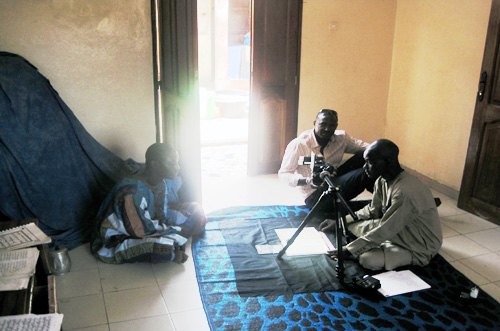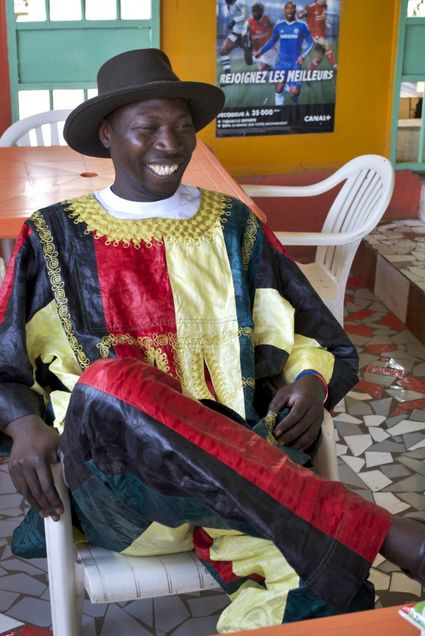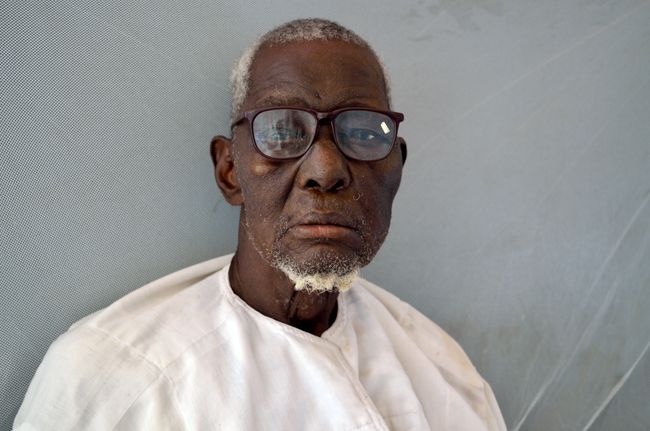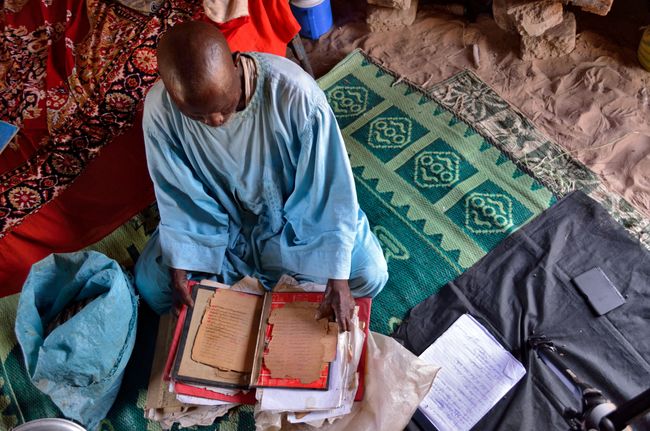DAKAR
View Larger Map
Established as a precolonial polity in 1796, Dakar is located on the peninsula of Senegal’s central coastline. In 1857 it was used as a fort site by the French and, since independence from French colonial rule, stands today as Senegal’s capital city. Dakar also remains the only city or site where a precolonial lineage of ruling Lebu Muslim clerics, called the Sëriñ Ndakarou, survives in Senegal.
Sources Cited
Eric S. Ross, Culture and Customs of Senegal, [London: Greenwood Press], xiv and 8.
DIOURBEL
View Larger Map
Diourbel is a historically and religiously significant site close to the holy city of Touba in Senegal. During World War I, Sheikh Ahmadou Bamba Mbacké, the founder of the Mouride order of Sufi Islam in Senegal, was placed under house arrest in Diourbel by French colonial authorities. It was here that Ahmadou Bamba undertook an ambitious mosque-building program using modern construction methods, such as steel and reinforced concrete. The first of two monumental mosques built in the Diourbel region was built according to the Ottoman plan and completed in two years, just as the French were at war with the Ottoman Empire. Because of its distinctive religious architecture, Diourbel demonstrated the power of the Mouride order, the strength of anti-colonial resistance, and the influence of Ahmadou Bamba on Senegalese politics and culture.
Sources Cited
Eric S. Ross, Culture and Customs of Senegal, [London: Greenwood Press], 66.
KHOUROU MBACKE
View Larger Map
Just southwest of the holy city of Touba, Khourou Mbacké is the birthplace of Shaykh Ahmadou Bamba, the founder of the Mouride order of Sufi Islam in Senegal.
Sources Cited
Eric Ross, Sufi City: Urban Design and Archetypes in Touba, [Rochester, NY: University of Rochester Press], 175.
SAINT LOUIS
View Larger Map
Saint Louis was established in the 17th century, and by 1885 it was one of the most important port cities on the Atlantic coast. Its settlements of Wolof, French and Portuguese peoples made it not only an important trade center for peanuts and slaves, but also home to an elite French-speaking, and Catholic, community of native Africans, known as the Métis. In the late 19th century, Saint Louis became one of the primary French municipalities, in which male inhabitants were fully French citizens. The cosmopolitan city was also home to a handful of French-educated intellectuals, as well as Senegal’s first woman author, Annette Mbaye d’Erneville (b. 1926). Containing many historic 19th century public buildings, zawiyas (Muslim pilgrimage hostels) built by the Malikiyya branch of the Sufi Mouride order, and one of several main Catholic cathedrals in Senegal, today’s Saint Louis is a UNESCO World Heritage Site. Saint Louis is also a major hub for nightlife and jazz in West Africa. Its rich social, political and architectural history thus gives witness to the city’s strong Christian community, as well as Senegal’s long history of religious tolerance and respect between Muslims and Christian minorities.
Sources Cited
Eric S. Ross, Culture and Customs of Senegal, [London: Greenwood Press], 3-77.
TOUBA
View Larger Map
Founded in 1887 by Shaykh Ahmadou Bamba Mbacké, Touba is the largest and most spectacular city in a wide network of Sufi towns and centers in Senegal. Until about 1970 Touba covered a small area. Today, it is the capital of the Mouride order and is home to roughly 500,000 people, making Touba Senegal’s second largest urban agglomeration after Dakar. This Sufi city is officially designated as an “autonomous rural community,” remaining under the almost exclusive jurisdiction of the Mouride order, rather than the typical civil agencies and administrative institutions of the nation-state.
Touba is significant not only in its rapid growth after Senegal’s independence from colonial rule in 1960, but also as a pilgrimage site for devout Mouride Muslims. Much like Mashhad in Iran, or Karbala in Iraq, Touba was built and developed around the tombs of important Muslim religious figures and saints, specifically the tomb of Ahmadou Bamba – the founder of the Mouride order of Sufi Islam in Senegal. The Great Mosque, built between 1930 and 1963, sits at the city’s center and also houses the mausolea of Sëriñ Mouhamadou Moustapha (Ahmadou Bamba’s eldest son and Mouride caliph), Soxna Maïmouna (Ahmadou Bamba’s youngest daughter) and Shaykh Ibra Fall (Ahmadou Bamba’s famous disciple and exemplary of Mouride devotion).
Sources Cited
Eric Ross, Sufi City: Urban Design and Archetypes in Touba, [Rochester, NY: University of Rochester Press], 3-4.
Eric S. Ross, Culture and Customs of Senegal, [London: Greenwood Press], 66 and 89.





